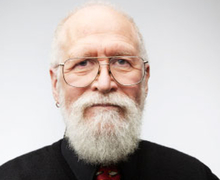Interview with Jon 'maddog' Hall
2019 - Fifty years of Unix and Linux advances

Jon 'maddog' Hall will give a talk about 2019 - Fifty years of Unix and Linux advances at FOSDEM 2019.
Q: Could you briefly introduce yourself?
I am Jon “maddog” Hall, currently Board Chair of the Linux Professional Institute and Chairman Emeritus of WIT. I am co-chair of the Caninos Loucos Project and founder of “Project Caua”.
I have been programming since 1969, using Unix since 1980 (when I worked for Bell Laboratories), Linux since 1994 (when I met Linus Torvalds) and promoting it full time since 1999. I have taught at the university level, worked for small and large companies (Digital Equipment Corporation, IBM, SGI and others), written many magazine articles, books and spoke at many conferences. I have visited over 100 countries, most of them more than one time.
Currently I make my living by consulting on how to save or make money with Free Software.
Q: What will your talk be about, exactly? Why this topic?
The world (and computing) has changed dramatically since 1969. Since most people have not had the privilege of being in computers for that long a period, or working as both a customer and a producer of systems, there are issues about computers where most people do not understand why things happened and what the impacts were.
Q: What do you hope to accomplish by giving this talk? What do you expect?
I hope to get people to think about what actually occurred in the past before inventions like multi-programming, multi-tasking, pipes and filters, shared libraries and even interrupts versus polling…and perhaps the understanding of these innovations will help them write better code today.
On the other hand, I have lived too long to expect anything.
Q: If you look back at the Unix of fifty years ago and compare it to is offspring in 2019, what core features are still the same?
This is part of my talk, so you will have to come to hear it….or buy me a beer after the talk.
Q: What are the most significant milestones in half a century of development of Unix and Unix-like systems such as the Linux kernel, GNU/Linux distributions and the BSDs?
See the bullet above
Q: Not many software projects can celebrate that their development goes back half a century. What is so special about Unix and its offspring that caused it to survive that long?
See the bullet two bullets above this one.
Q: The world has changed a lot in the last fifty years. Our computers sit in our pockets now, our programs run in the cloud, our social networks spy on us and AI algorithms are making decisions for us. Unix wasn’t built for this world, because all these developments didn’t exist fifty years ago. How will Linux and the rest of the FOSS Unix family survive in this world?
Ditto. But I will also point out that while the implementation of Unix/Linux has changed, the interfaces tend to remain much the same. I will address this in the talk also. I guess some people will just have to listen to me.
Q: Have you enjoyed previous FOSDEM editions?
I am now 68+ years old, and this will be my half-century in the computer industry. I have had a lot of jobs, met a lot of fine people, many of them at FOSDEM.
While I went to some early FOSDEMS, I have not been to FOSDEM for a long time. I remember when it was hard to navigate the hallways because of the number of people and the small spaces, and that lunch was a single Euro for a bagelette smeared with cream cheese and a beer. Perhaps some of these things have changed somewhat, but I do remember the camaraderie and the talks, and I hope to experience them again.

Creative Commons License
This interview is licensed under a Creative Commons Attribution 2.0 Belgium License.